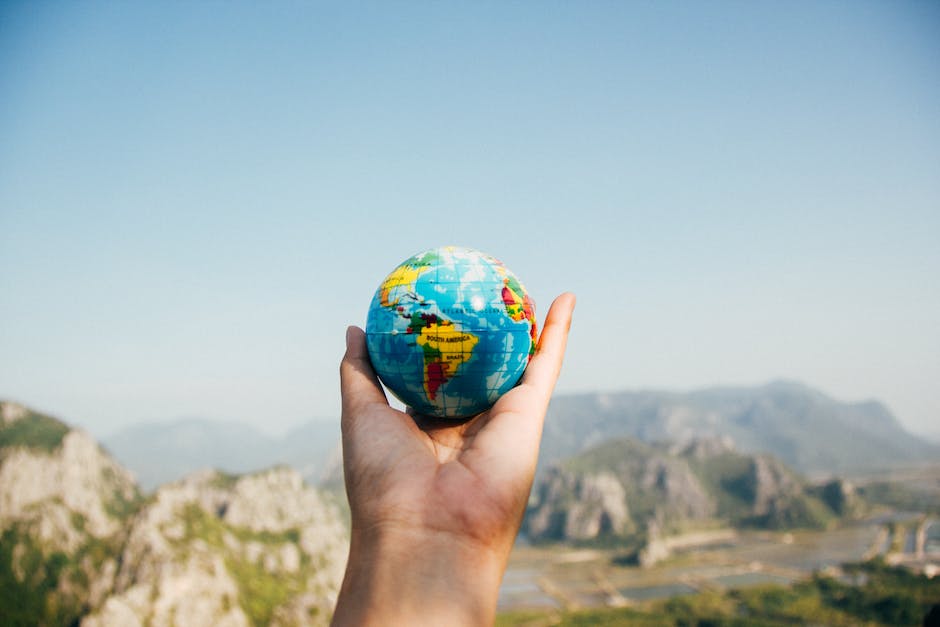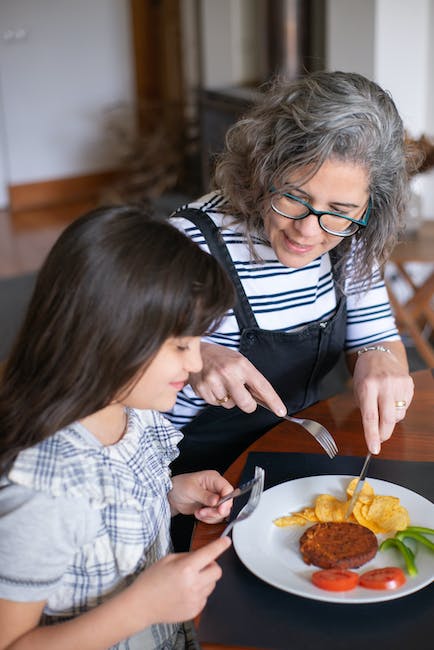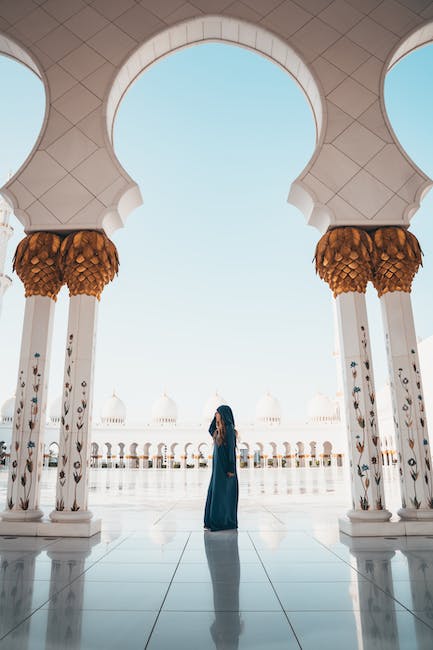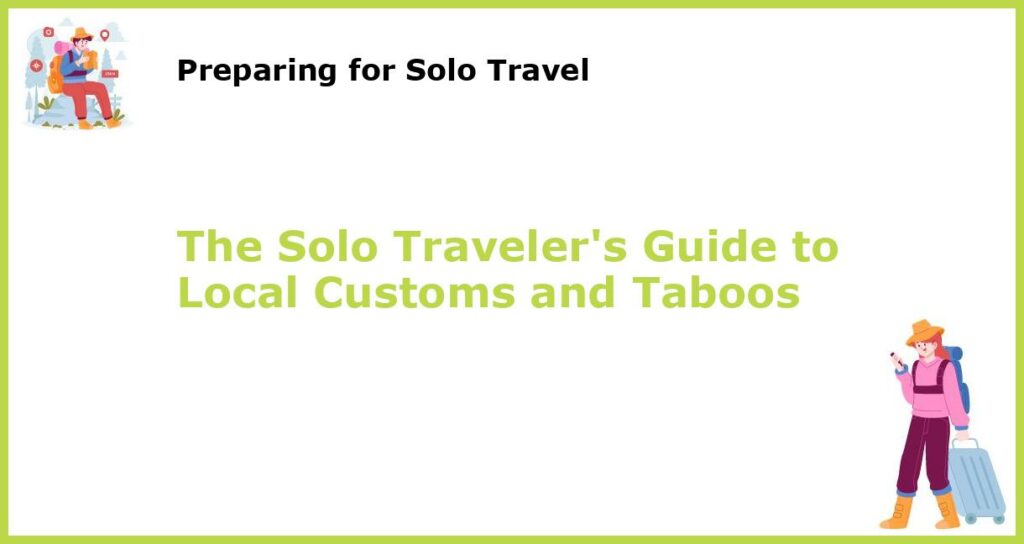Travelling is an adventure that everyone should experience at least once in their lifetime. It is an opportunity to explore new cultures, interact with different people, try out new foods, and gain a new outlook on life. However, being a solo traveler comes with its own set of unique challenges. One of which is knowing and understanding the local customs and taboos that exist in every country. Understanding the customs helps to show respect for the culture and community, and it can also enhance the travel experience. Knowledge of the local customs and taboos helps a solo traveler interact better with the locals and avoid cultural faux pas. These etiquettes are so critical, and travellers should be mindful of them to make every travel experience memorable.
Learn the Language

Although English is a global language, it is important to know that most people prefer their local language. Learning just a few phrases in the local language can go a long way because it shows that you respect the locals and their culture. Knowing how to ask for directions, say “hello,” “please” and “thank you” in the local language can help the locals warm up to the solo traveller. Additionally, it makes moving around a new place easy because navigating conversations becomes manageable. It’s worth noting that locals appreciate it when tourists respect their local language.
Dress Appropriately

What is acceptable attire in some cultures may not be appropriate in others. Researching the appropriate attire before packing is crucial to ensure that tourists blend in with the locals. In some countries, it may be mandatory to cover some body parts out of respect for their culture and religion. In some religious cultures, they ban specific colours, and therefore travellers should avoid such colours when travelling. Dressing appropriately shows the locals that tourists respect and appreciate their culture. Wearing an outfit that is offensive to them may attract unwanted attention and even put off the locals.
Eating Etiquette

Eating habits vary from place to place, and there is no standard eating etiquette that applies universally. Always take the time to research eating habits and customs in your travel destination. For instance, in some countries, eating with your left hand can be seen as improper because that is the hand they use for personal hygiene. Similarly, in some cultures, it’s polite to slurp noodles when eating as it shows the chef that the meal is delicious. Knowing the appropriate dining etiquette in a culture is an important step towards understanding the local customs and any dining taboos that may exist.
Religious Practices

Religion plays an important role in many cultures. Many countries have religious sites that travellers may want to visit. It’s important to research the religious practices in the particular country to ensure that tourists don’t disrespect the locals. Many religious sites have specific dress codes, and it’s essential to adhere to these codes. For instance, in many Islamic countries, non-Muslims should dress conservatively while visiting religious sites. Additionally, tourists must understand that some religious ceremonies may dictate peace, and tourists should be quiet and respectful during such times.
Avoiding Gestures That Can Be Misinterpreted

In some cultures, non-verbal signs have different meanings than in other cultures. A gesture that is considered friendly in one culture may be considered rude in another. Therefore, understanding gestures that can be misinterpreted is vital. Tourists should research the gestures that may offend or disrespect locals in their travel destination. Additionally, it’s essential to be sensitive to the tone of any conversation because some cultures may find a loud tone of voice offensive.
Personal Space

Personal space is a cultural concept that varies from place to place. Some cultures prefer close proximity while others prefer more significant distances. As a traveller, it is essential to be sensitive to the culture’s personal space preferences. Respect the locals’ personal space to avoid unintentionally making them uncomfortable as it may put them off. In some cultures, it’s also important to understand that physical contact is less common as they may consider it to be intimate.
Celebrations and Festivals

Every culture has its own celebrations and festivals. These events are an excellent way to experience a community’s culture, and tourists can participate if they respect the culture’s do’s and don’ts. Researching the festivals and the expected etiquette regarding dress codes, noise levels, and alcohol consumption is crucial to avoid offending or disrespecting locals.
Gender and Social Interaction

Gender roles and social interactions vary from culture to culture. It’s important to research and understand the social norms of the culture, especially regarding gender roles, before travelling. For instance, in some Muslim cultures, it’s inappropriate for men to speak directly to women or shake their hand. Additionally, in Japan, silence is considered golden, and tourists should take note to avoid speaking loudly, especially when using public transportation systems. Understanding gender roles and the appropriate social interactions in the culture is an essential element towards avoiding cultural misunderstandings.
Respecting the Environment

Respecting the environment is an essential aspect of travelling. Every tourist should understand that conservation laws vary between countries, and it’s essential to research these laws to avoid breaking them. Additionally, tourists should avoid littering the environment and support sustainable tourism to help protect the environment. Being mindful of natural resources in the tourist destination and not causing unnecessary harm demonstrates respect for the community and ensures sustainability for future tourism.








 You might also be interested in those articles related to solo traveling
You might also be interested in those articles related to solo traveling